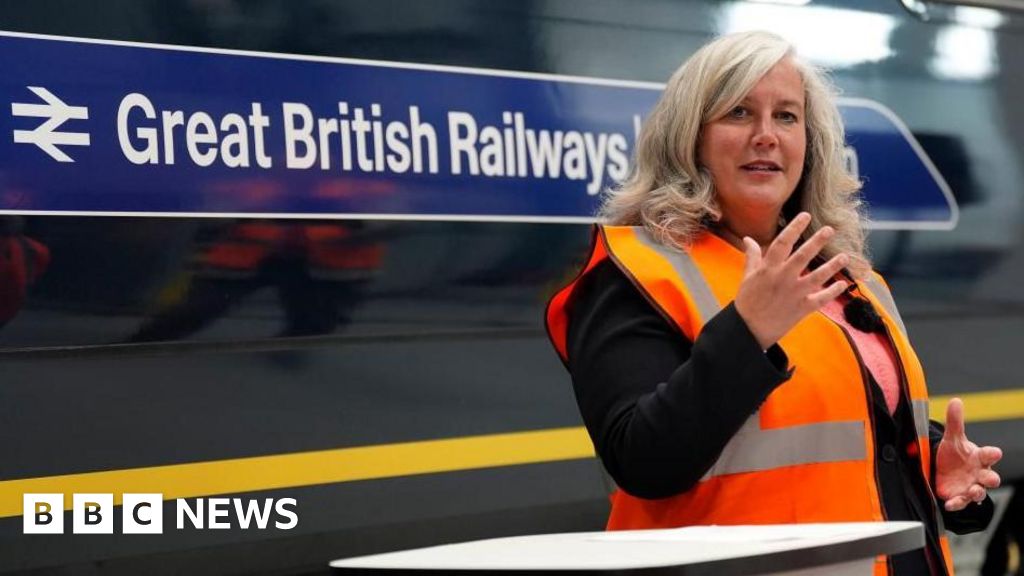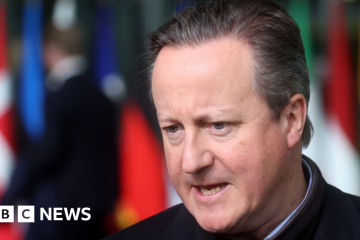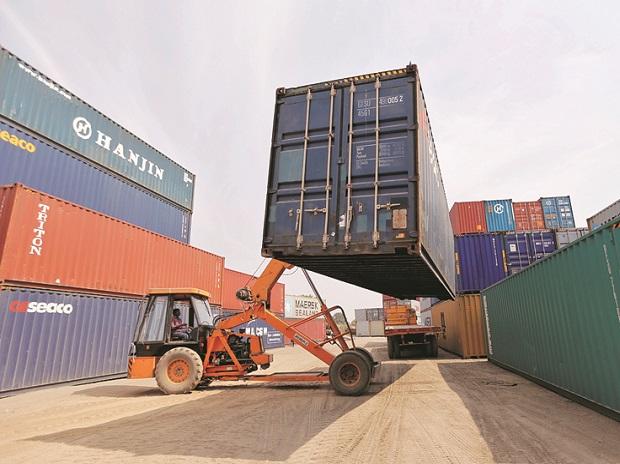Transport correspondent & transport producer
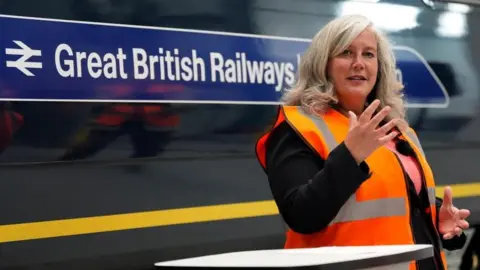 PA
PASouth Western Railway (SWR) has been renationalised, making it the first train company to transfer to public ownership under Labour.
The first nationalised service, from Woking to Surbiton, departed on time at 05:36 on Sunday, though the ongoing journey to London Waterloo was on a rail replacement bus due to engineering work.
The government called the move a “new dawn for rail” but held back from promising lower fares, focusing more on plans to improve services and invest in infrastructure.
Unions have expressed concerns over outsourcing staffing for security, cleaning and other areas to private companies, while the opposition Conservatives said Labour must “deliver on their promises”.
SWR trains are now the responsibility of the DfT (Department for Transport) Operator and will be integrated into Great British Railways (GBR), which will oversee all railway infrastructure.
GBR will not officially exist until MPs vote to create it, which looks set to be in the autumn though it won’t be up and running for some time afterwards. Until then, the DfT will be in charge.
On a visit to a train depot in Bournemouth, Transport Secretary Heidi Alexander described the nationalisation of SWR as a “real watershed moment”.
Asked whether ticket prices would fall for passengers, she told the BBC: “I can’t promise you that. I would love to be able to do that but the truth of the matter is that, on an annual basis, just the day-today running of the trains the taxpayer subsidises them to the tune of £2bn a year.”
She said what she could assure customers of is that “I will strain every sinew to make sure that they get good value for money”.
Whitehall sources have told the BBC ministers hope to find ways to cut the cost of rail travel but it is impossible to make promises before GBR is formally established and services renationalised.
The first SWR service under public ownership left on schedule on Sunday morning, featuring the new GBR livery, showing “Great British Railways” and “coming soon” painted in white against a royal blue background decorated with part of a union flag.
BBC South political editor Peter Henley was among the first passengers on the train although he had to swap to a rail replacement bus at Surbiton to take him into London due to engineering works.
In 1996, the first privatised service – which took place under John Major’s Conservative government – was also operated by a rail replacement bus.
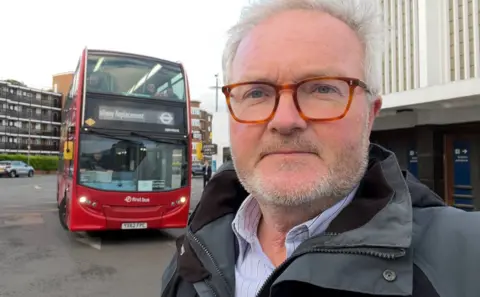 Peter Henley
Peter HenleyTwo more rail firms, C2C and Greater Anglia, will be brought into public ownership later this year.
Four major operators have already been brought under public ownership under previous Conservative governments – London North Eastern Railway (LNER), South Eastern, TransPennine Express and Northern.
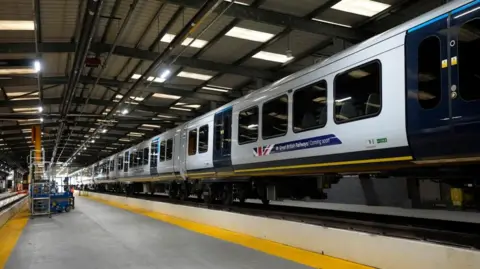 PA Me
PA MeSeven more companies will be renationalised by 2027 as each of their contracts end – or sooner if their performance is judged to be unacceptable.
These are:
- West Midlands Trains
- East Midlands Railway
- Avanti West Coast
- CrossCountry
- Chiltern Railways
- Govia Thameslink Railway
- Great Western
Current government plans are to renationalise nearly all passenger rail services across England, Wales and Scotland by 2027, proposals which have been attacked by the Conservatives.
Shadow Transport Secretary Gareth Bacon said: “Labour have talked up the benefits of renationalisation for years and they will now have to deliver on their promises of lower ticket prices, an end to all disruption and strikes and better onboard services. The alternative is that, as usual, British taxpayers have to foot the bill for Labour.”
The RMT union welcomed SWR’s nationalisation but said it was concerned about outsourcing workers such as gateline staff as well as the cleaning crew and security to private firms.
RMT general secretary Eddie Dempsey said: “Public ownership of South Western Railway is a major step forward and is a clear rejection of the failed privatisation model.
“But the job is incomplete when our contracted-out members remain outsourced and not reaping the benefits of nationalisation.”
Note:- (Not all news on the site expresses the point of view of the site, but we transmit this news automatically and translate it through programmatic technology on the site and not from a human editor. The content is auto-generated from a syndicated feed.))
